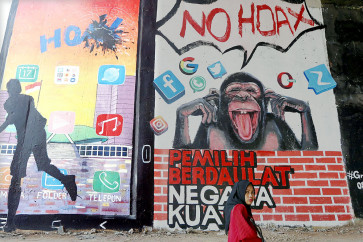Popular Reads
Top Results
Can't find what you're looking for?
View all search resultsPopular Reads
Top Results
Can't find what you're looking for?
View all search resultsEducating citizens in this era of the democratization of knowledge
Educational institutions and teachers must realign themselves in the digital era to instill civic and social responsibility in cultivating students as democratic citizens.
Change text size
Gift Premium Articles
to Anyone
E
ducation has for years been under the sway of a knowledge regime, with educational institutions tasked with a mission to enlighten students and transform them into repositories of information imparted by teachers and textbooks. Students committed to their memory theories, methods, historical accounts and timelines.
In the past, the ability to assimilate and retain information was paramount, particularly given the challenges in accessing rational and empirically verified information. Scientists and experts needed to be skilled in not only collecting and validating information, but also retaining it, which facilitated academic narratives, analyses and decision-making.
Knowledge was a proprietary commodity only available to a select few, and educational institutions were places where knowledge was taught systematically to ensure full student comperhension.
However, a sea change has occurred with the advent of the internet and digitalization, triggering the democratization of information and knowledge in a profound way. Technology has made it possible for individuals to access information that was once the exclusive purview of professionals. Knowledge is now externalized in an array of online repositories that can be searched, accessed and synthesized by anyone, from anywhere and at no cost (Toppo and Tracy, 2021).
The democratization of knowledge has led to two contradictory outcomes. On the one hand, it levels the playing field, giving everyone equal opportunity to create and access knowledge. On the other hand, however, the quality of the information and knowledge produced is under threat.
The democratization of knowledge has given rise to new values, norms, modes and actors in the knowledge production process. Conspicuously, formal education and academic literature no longer constitute the primary avenues of acquiring knowledge in the digital age. Social media has taken over as the preeminent source of new knowledge (Peters and Fitzsimons, 2012).
Consequently, the old guardians of expertise are rapidly losing relevance and, according to Nichols (2017), are even being declared dead. In the digital realm, anyone has an equal opportunity to obtain knowledge, disseminate it and establish themselves as an “expert”.



















